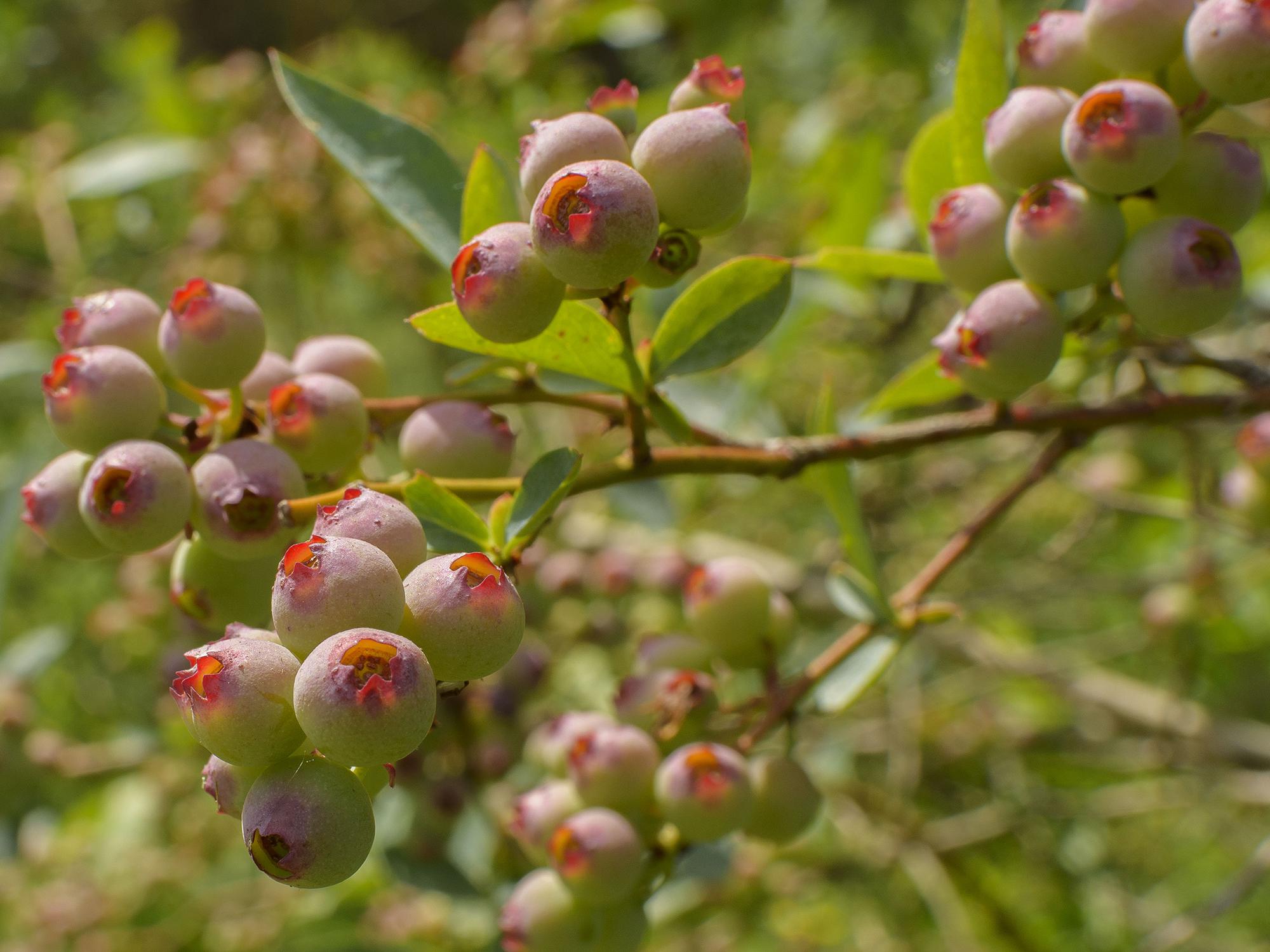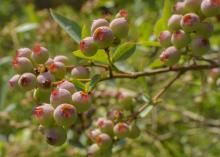Information Possibly Outdated
The information presented on this page was originally released on May 19, 2017. It may not be outdated, but please search our site for more current information. If you plan to quote or reference this information in a publication, please check with the Extension specialist or author before proceeding.
Warm weather speeds state's blueberry harvest
WAYNESBORO, Miss. -- The demand for fresh Mississippi blueberries may grow this year after a mid-March freeze hampered production in neighboring states.
Freezing temperatures during the crop's early growth stage on farms east of the state, especially in Georgia and North Carolina, caused production losses of up to 50 percent.
Meanwhile, 85 percent of Mississippi's blueberry crop was either in good or excellent condition as of May 15, according to a weekly crop progress and condition report published by the U.S. Department of Agriculture.
“No area of the state had a major loss from the cold of mid-March,” said Eric Stafne, an associate Extension and research professor in fruit crops with the Mississippi State University Extension Service and the Mississippi Agricultural and Forestry Experiment Station. “It was more hit-or-miss, depending on location and plant development at the time of the event.”
A warm February preceded the freeze and a warm April followed, causing this year’s harvest to be unusually early in most parts of the state.
“The effect of this can be both good and bad,” Stafne said. “The bad is potential loss to freeze conditions. This did occur in mid-March to some growers, especially on early rabbiteye blueberry cultivars like Premier and Climax. The good is because the berries are ready when a better market window exists for higher prices.”
Mississippi growers did not escape unscathed from the freeze. K&M Blueberry Farm in Wayne County -- the state’s leading county in the crop’s production -- experienced a loss of about 30 percent in the early-spring cold snap. Michael Knight, farm owner and president of the Wayne County Blueberry Growers Association, said more than 30 area farms likely experienced this degree of loss.
“Once we got through the cold weather, we warmed up quickly and harvest started almost two weeks ahead of schedule,” Knight said. “We’re usually picking from May 25 through early July. Premier varieties started ripening before the Climax varieties. Usually, it’s the other way around. It’s been an atypical season.”
Rhonda Head, owner of the Blueberry Patch in Starkville, said she has not seen this situation at her farm.
“Everything has been normal,” she said. “We’ve gotten some good spring rains and haven’t had any noticeable crop damage. I usually have blueberries at the farmers market by Father’s Day, and I expect to be out there at about the same time this year.”
While Stafne said he expects demand from the weather-affected states to rise in the short term, he does not expect to see a dramatic increase in land dedicated to blueberries. The state hovers between 2,000 and 2,500 acres of the crop each year.
“I would say it is closer to 2,000 acres currently and probably diminishing due to a poor frozen process market, aging growers, pest control problems and difficulty in securing labor,” Stafne said. “There are still a lot of frozen blueberries that are glutting the market. Prices become depressed because of this. This doesn’t apply as much to Mississippi, but it is a trend nationally.”
Before harvest season winds down in early July, growers often begin facing problems from spotted wing drosophila fruit flies as summer temperatures arrive. This pest, which can make berries unmarketable, is the largest problem producers face. However, the disease Exobasidium leaf and fruit spot also damages yields.
“We are seeing a little Exobasidium show up on some of our farms, but it could be and has been a lot worse,” Knight said. “I follow a spray program that cuts out most of it, and I think that’s what growers have to do to prevent the damage it can do.”
With harvest season just underway, there are no reports yet on prices per flat, which is about 10 pounds of blueberries. Those prices typically start around $25 to $30 before falling throughout the season.




